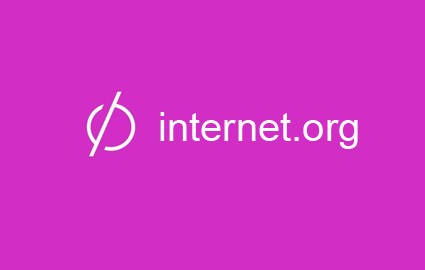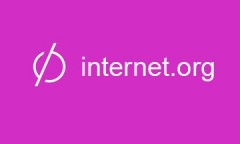By Steve Pak, | February 08, 2016

Internet.org Logo
Facebook's Free Basics mobile app has been blocked by India's telecom regulators in a ruling that argues the world's largest social network broke the rules of net neutrality. Its Internet service provided smartphones with free access to a limited number of online sites with content such as the BBC, Wikipedia, local news and weather forecasts. However, regulatory officials argued that Free Basics favored certain web services over others.
Like Us on Facebook
The Telecom Regulatory Authority of India ruled that no Internet service provider can offer or charge unfair tariffs for data services based on the online content. Indian regulators had investigated whether certain web content should get priority or be offered gratis.
Facebook CEO and co-founder Mark Zuckerberg shared that he would take steps to make Free Basics legal. He shared in a Facebook post that the company is unhappy about the decision. However, it is still dedicated to taking steps to increase web connectivity in India and other countries.
Free Basics provides limited Internet services to mobile phones. It also offers free access to Facebook's social network and messaging services, according to Reuters.
Zuckerberg stated that India is a key goal in its free Internet program because over a billion people in the country are offline, according to BBC. Providing web access can help to create millions of new jobs, improve education, and reduce poverty.
Both sides of the debate launched big publicity campaigns. For example, Facebook bought front-page ads in national newspapers to defend its Free Basics program.
However, inventor of the the Internet Sir Tim Berners-Lee praised the Indian regulators' decision. He argued that it sent the clear message that there cannot be a two-level Internet for rich and poor people.
Berners-Lee called for an open web that provides full connectivity to everyone. He also encouraged the Indian government to work with citizens and companies to make everyone active users on the Internet by using methods such as public access programs or free data limits.
Zuckerberg has argued that it is impossible to offer the entire Internet for free. Facebook launched its project in 2013 as Internet.org. The company has claimed it has provided web connectivity to over 19 million people.
Here's a Facebook Internet.org video:
-
Use of Coronavirus Pandemic Drones Raises Privacy Concerns: Drones Spread Fear, Local Officials Say

-
Coronavirus Hampers The Delivery Of Lockheed Martin F-35 Stealth Fighters For 2020

-
Instagram Speeds Up Plans to Add Account Memorialization Feature Due to COVID-19 Deaths

-
NASA: Perseverance Plans to Bring 'Mars Rock' to Earth in 2031

-
600 Dead And 3,000 In The Hospital as Iranians Believed Drinking High-Concentrations of Alcohol Can Cure The Coronavirus

-
600 Dead And 3,000 In The Hospital as Iranians Believed Drinking High-Concentrations of Alcohol Can Cure The Coronavirus

-
COVID-19: Doctors, Nurses Use Virtual Reality to Learn New Skills in Treating Coronavirus Patients








